Summary
Organized by the Permanent Mission of Germany and UNEP, the event marked the official launch of Global Opportunities for SDGs (GO for SDGs), an initiative aiming to accelerate and raise ambition for building inclusive and sustainable economies. Led by Germany and UNEP and open to other partners, GO for SDGs will serve as platform to facilitate regional dialogue and exchange among practitioners on best practices for replicating and scaling-up effects, and by fostering local institutional learning and experience sharing.
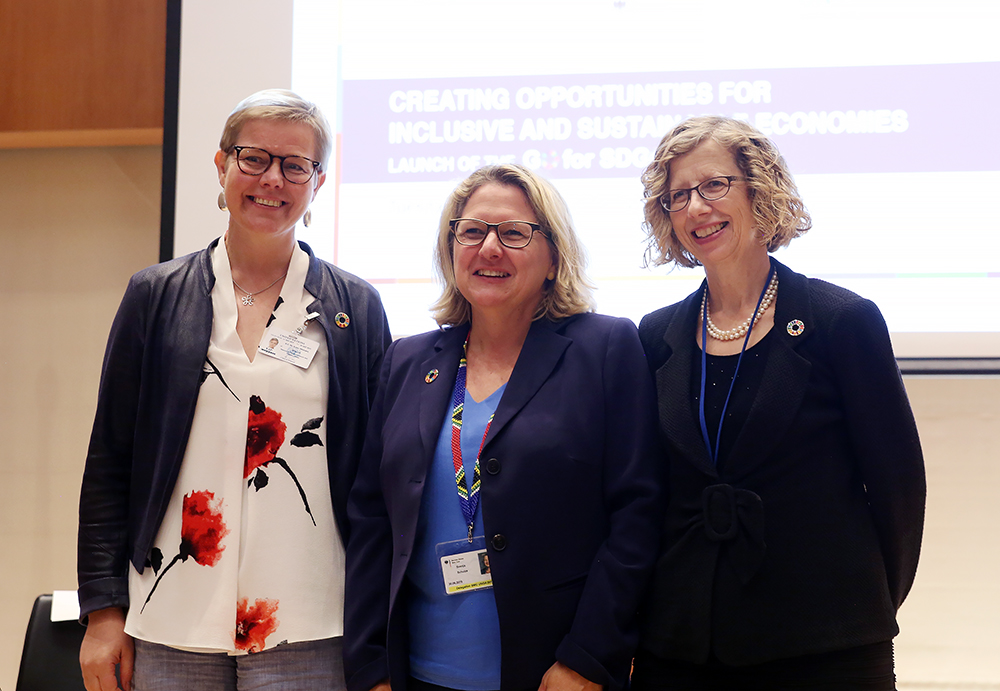
L-R: Krista Mikkonen, Minister of the Environment and Climate Change, Finland; Svenja Schulze, Federal Minister for the Environment, Nature Conservation and Nuclear Safety, Germany; and Inger Andersen, Executive Director, UNEP
Highlights
- The GO for SDGs Initiative will serve as platform to accelerate ambition by facilitating dialogue and knowledge sharing for inclusive green economies.
- Germany will contribute EUR 7.5 million.
- GO for SDGs will work through existing initiatives like The UN Environment Programme's (UNEP) One Planet Network.
- Finland is using a toolbox of policies to achieve its commitments to be carbon neutral by 2035 and move towards a circular economy.
- Peru’s National Green Growth and Competitiveness Plan highlights the value of the environment and natural resources for economic growth.
Karin Göbel, Permanent Mission of Germany to the UN, welcomed participants noting that the stakes to implement the SDGs have never been higher and calling for integrative solutions that bring actors together, unlock potential, and galvanize momentum towards a fast, fair, and green transformation.
Svenja Schulze, Federal Minister for the Environment, Nature Conservation and Nuclear Safety of Germany, reminded participants that only ten years remain to implement the SDGs, noting that despite progress in some areas, more action is needed, especially on climate, water and inequality. Highlighting that many effective tools, methods and approaches already exist, she explained that the GO for SDGs initiative will focus on scaling up their use and enabling their adaptation to specific national circumstances. She announced Germany’s contribution of EUR 7.5 million to the initiative, expressing hope that other partners will join. She called for greater efforts to promote green innovation and sustainable business models and, outlining several successful examples, expressed confidence that GO for SDGs will be fruitful.
Citing several recent reports on SDG implementation, Inger Andersen, UNEP Executive Director, stressed that many areas receive insufficient attention, including rapidly increasing resource consumption and biodiversity decline. She underlined that SDG 12 (sustainable consumption and production) has the potential to unlock progress on serval SDGs. She explained that GO for SDGs will allow working through the UN system to enable sharing knowledge products and cross-country learning using existing platforms such as UNEP’s One Planet network. She called for “rolling up our collective sleeves” to tackle implementation together.
Krista Mikkonen, Minister of the Environment and Climate Change, Finland, said her country wants to lead by example, by making Finland climate-neutral by 2035 and moving towards a circular economy. She highlighted that these ambitious targets need to be achieved in a socially-inclusive way. Instead of instituting a comprehensive sustainable development policy, she noted, Finland has a toolbox of policies tackling different issues, from plastics to waste. Mikkonen added that, under the One Planet Network, Finland has taken responsibility on the program for sustainable building and construction.
Lucía Ruíz, Minister of Environment, Peru, highlighted the need for a grassroots, multi-stakeholder approach to SDG implementation, and for “multi-alignment” of government policies and actions. She said Peru is working to transition to a green, circular economy and has recently instituted a ban on single-use plastics. She further mentioned Peru’s recently adopted National Green Growth and Competitiveness Plan, which highlights the value of the environment and natural resources for economic growth.
In the ensuing discussion, participants debated, among other issues: ways to rapidly scale up successful local and regional initiatives for SDG implementation; transformative cooperation; the need to provide green jobs and include social partners in the social dialogue needed for a successful transition to a green economy; and putting local governments on the UN’s agenda.
In her response, Schulze highlighted the need to translate the SDGs at the regional and local levels so that the Goals provide answers to local needs, and invited other governments to embark on the journey to become carbon neutral by 2050, like Germany. Mikkonen explained that GO for SDGs is necessary to create a pool of practical local answers and solutions to SDG implementation. Ruiz underscored the need to tackle corruption in local administrations. Satya Tripathi, Assistant Secretary-General and Head of UNEP’s New York Office, underscored the need to find the “magic mix between progress and politeness when it comes to the private sector,” which he explained implies finding the balance between safeguards and room for partnerships and innovation.
In closing, Schulze encouraged participants to “paint the picture of a better future together” that will be realized through climate action and achieving the SDGs.
Photos by IISD/ENB | Francis Dejon
For photo reprint permissions, please follow instructions at our Attribution Regulations for Meeting Photo Usage Page.
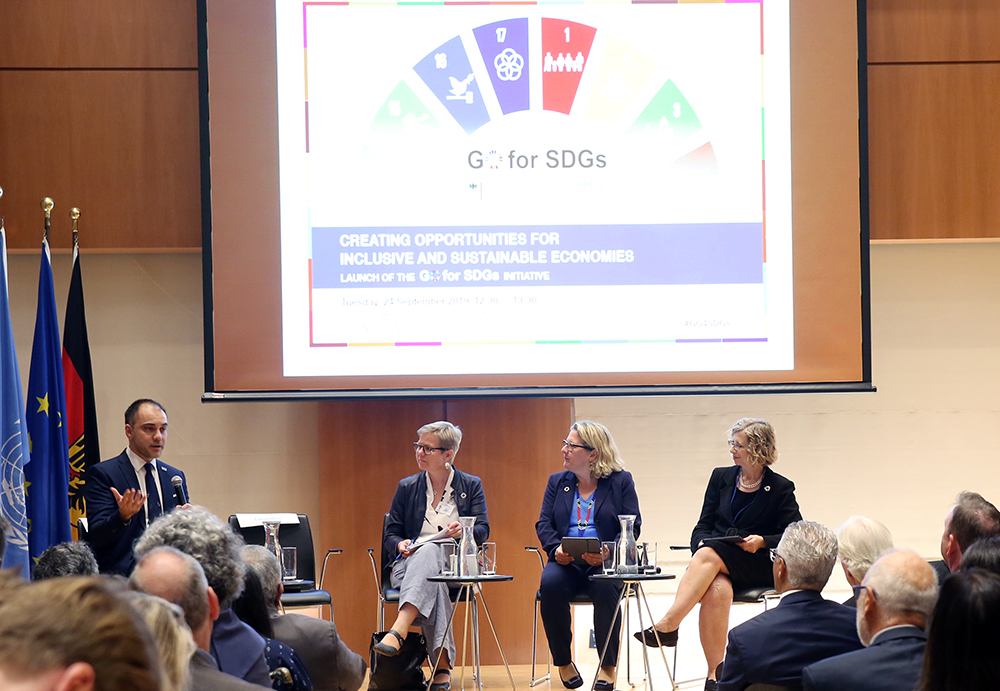
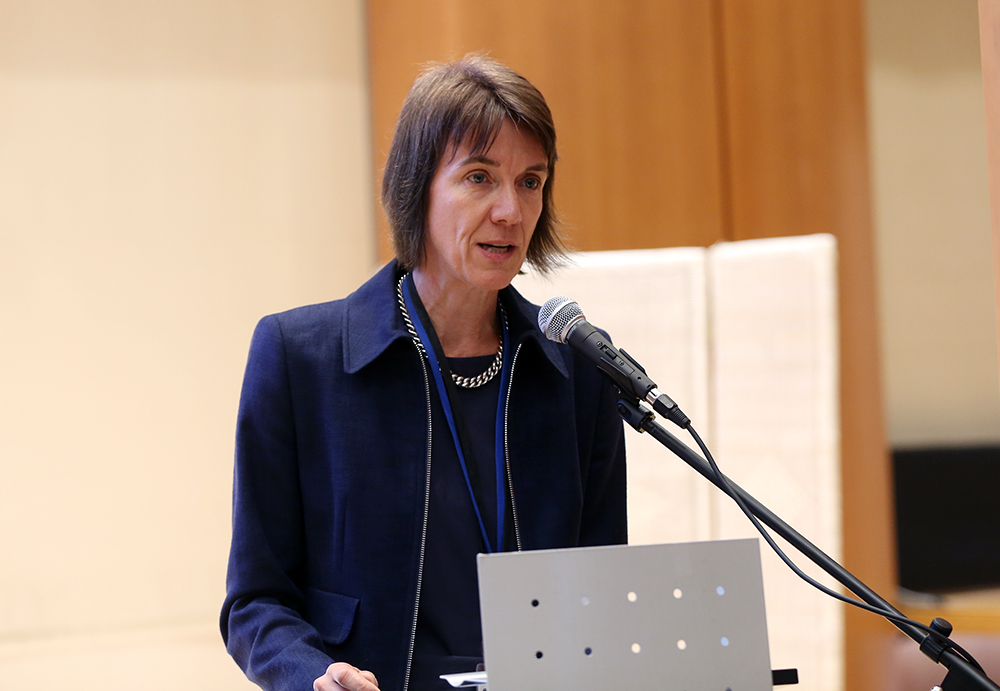

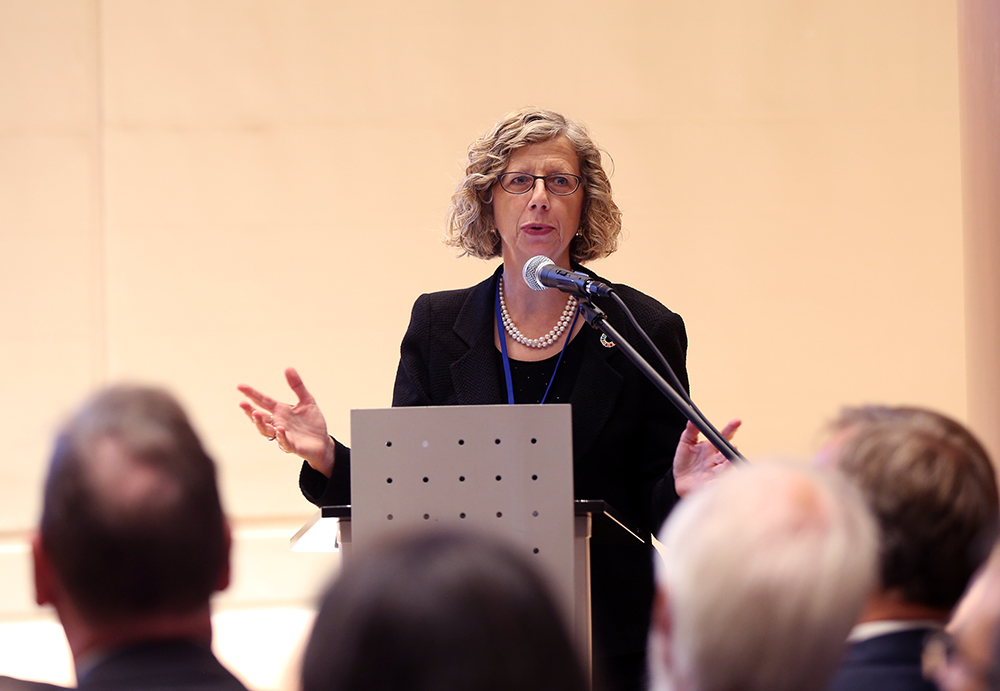
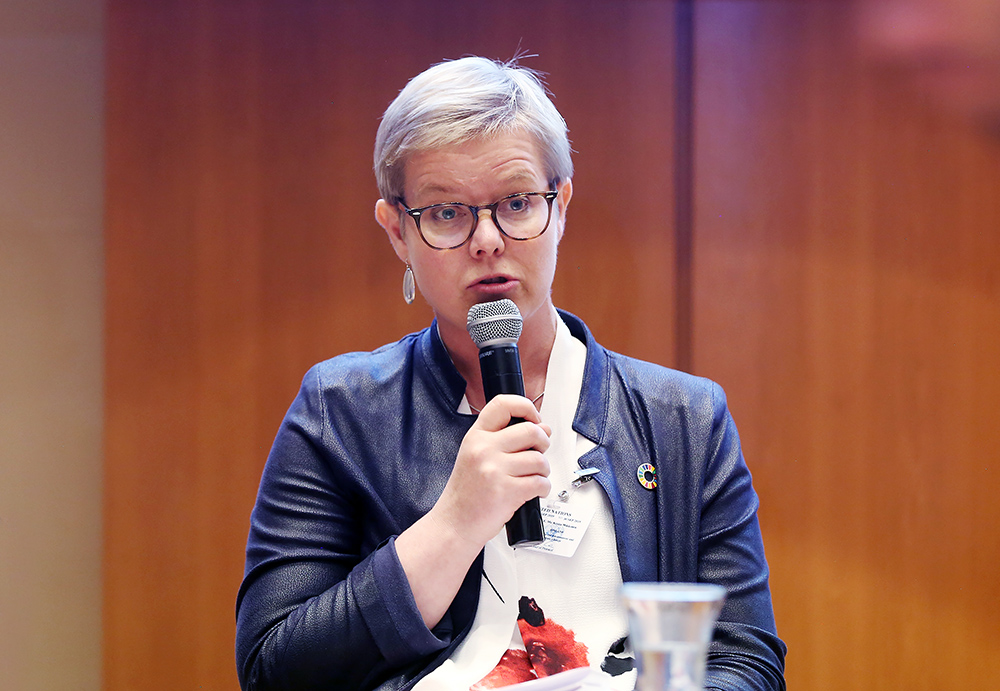
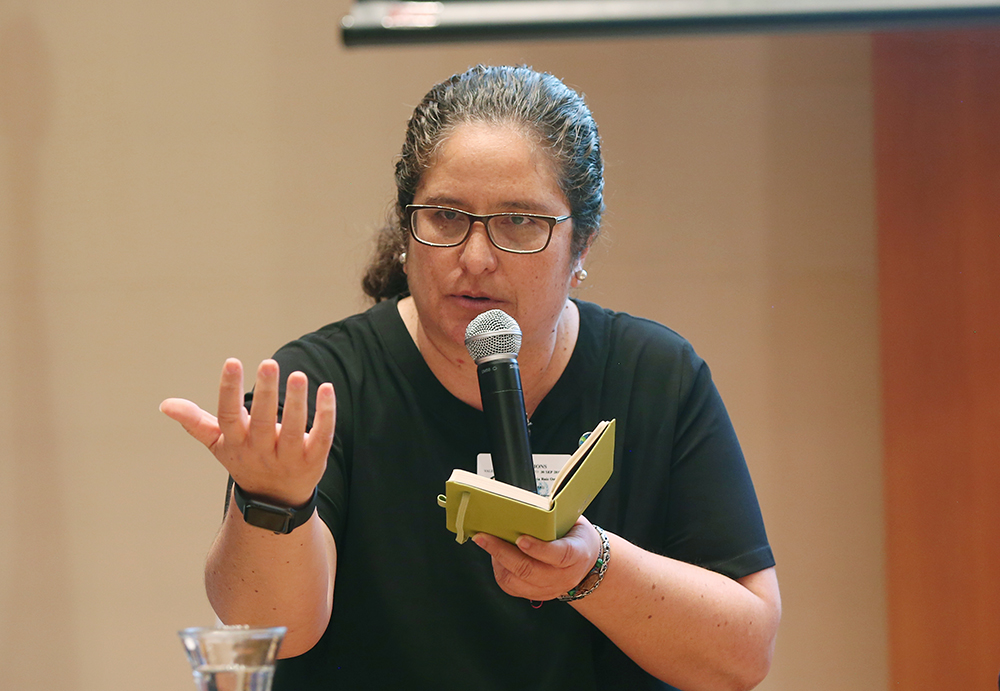
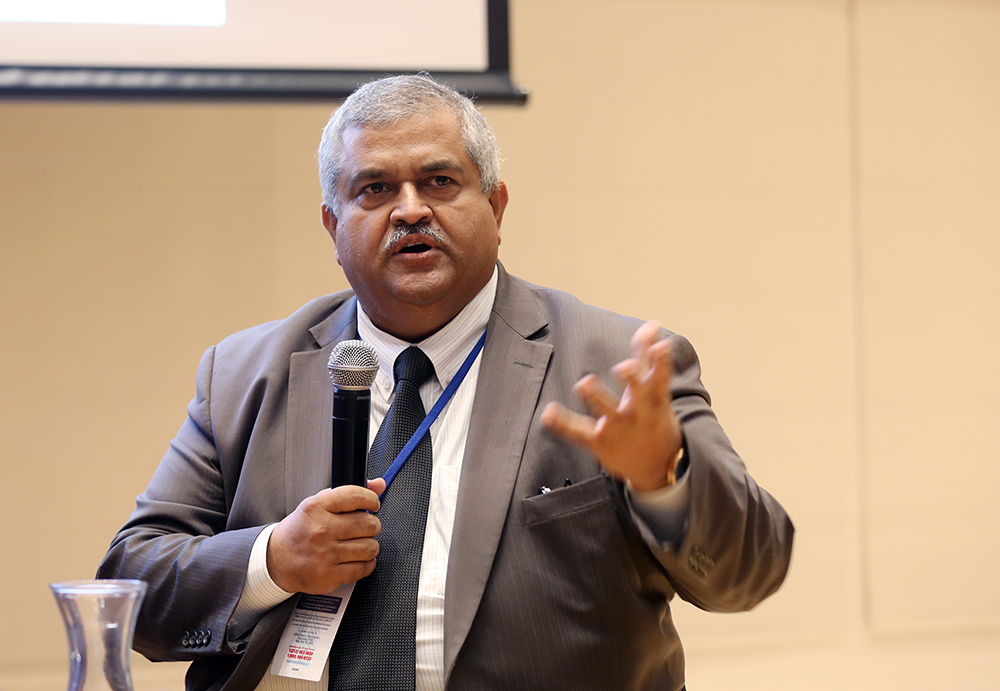
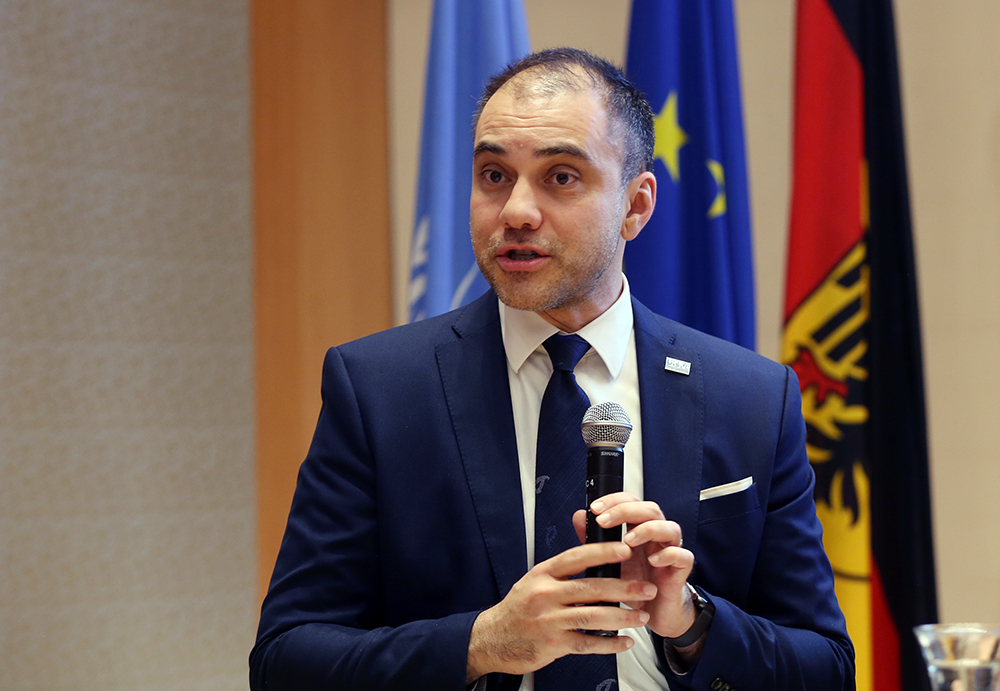
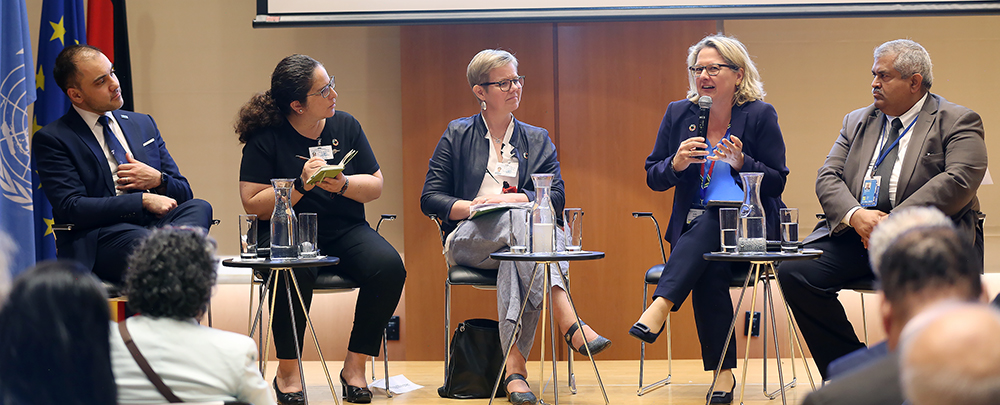

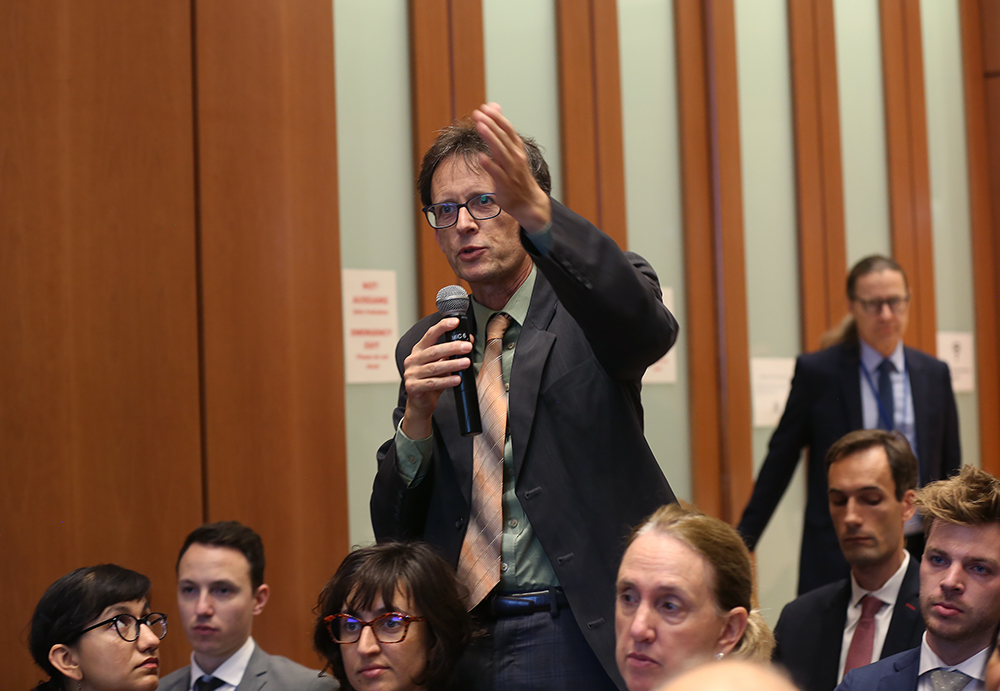
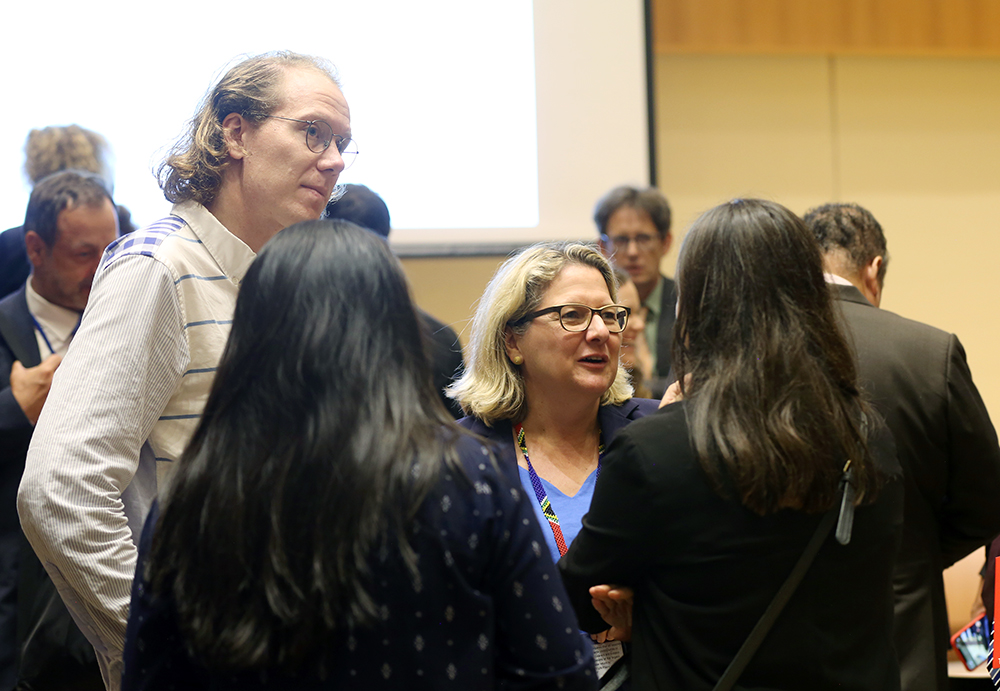
CONTACT
Tobias Cabani | Tobias.Cabani.Extern@bmu.bund.de